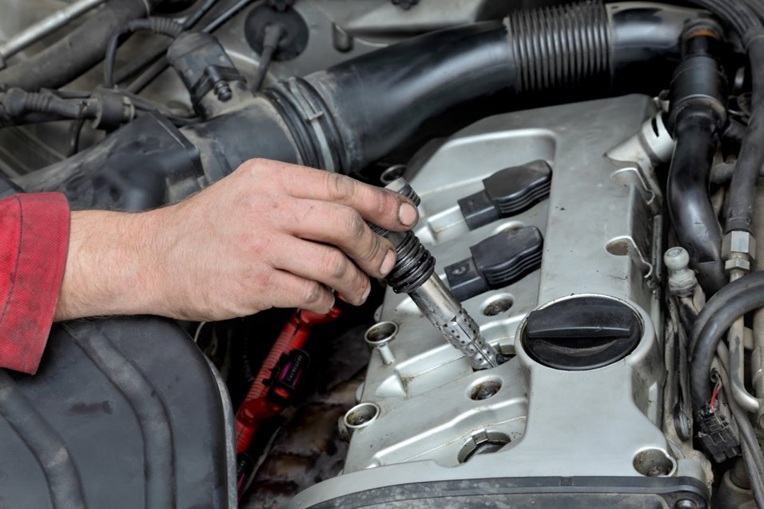Is your car struggling to start or running rough? Small vehicle issues can point to a bigger underlying problem. Let’s explore how a faulty ignition component can impact performance and why regular inspections matter.
Loss of Power and Poor Acceleration
A failing ignition coil directly affects engine power. This component is responsible for generating the spark needed to ignite the fuel mixture. When it weakens or fails, the engine may misfire or hesitate during acceleration. Drivers might notice sluggish performance, especially when climbing hills or overtaking other vehicles.
Inconsistent power output can cause strain on other vehicle components. If left unchecked, the issue could lead to further mechanical failures. Regular inspections help identify the early signs of reduced performance. Addressing the problem early prevents costly repairs down the road.
Increased Emissions and Failed Inspections
A faulty component affects the combustion process, leading to incomplete fuel burning. This results in higher emissions that contribute to environmental pollution. Vehicles with excessive emissions may struggle to pass state inspection tests. The engine produces more carbon buildup, which affects air quality and performance.
Regular maintenance helps ensure emission levels stay within legal limits. Addressing faulty components early keeps the vehicle running clean and compliant. Increased emissions also indicate mechanical strain, which leads to faster wear and tear. Mechanics can test the system to confirm if a replacement is needed. Keeping emissions low benefits both the car and the environment.
Working with a Reliable Service Team
Choosing an experienced service team ensures accurate diagnosis and quality repairs. Certified mechanics have the right tools to test components thoroughly. They can determine whether the issue requires repair or full replacement. Many service centers offer diagnostic tests that pinpoint the exact cause of misfires. Working with professionals helps prevent unnecessary part replacements and added expenses.
A reliable team also provides maintenance tips to extend vehicle life. They check for wiring issues, corrosion, and wear on electrical connections. Regular tune-ups keep the system running at peak efficiency. Professional servicing improves overall performance. Mechanics ensure the correct parts are installed, preventing future failures. Investing in expert care keeps the vehicle in top condition for years to come.
Preventing Major Engine Damage
Ignoring minor issues can lead to costly repairs over time. A failing ignition component forces the engine to work harder, increasing wear. Heat buildup and electrical faults can damage surrounding parts. Unchecked misfires strain the catalytic converter, leading to expensive replacements. Consistent stalling and hesitation put unnecessary pressure on the transmission.
Routine inspections prevent these long-term problems. Mechanics can detect small faults before they cause major damage. Regular check-ups also ensure optimal fuel efficiency. Addressing minor repairs early extends the lifespan of essential components. Preventative maintenance saves money and keeps the vehicle running smoothly. A well-maintained system delivers better performance and reliability.
Preventing Overheating and Severe Damage
When combustion is incomplete, unburned fuel accumulates in the system, leading to excess heat buildup. This added stress can cause overheating, especially during long drives or in heavy traffic. Overheated engines can damage critical parts such as the cylinder head, pistons, and spark plugs. If left unaddressed, this issue may result in costly repairs or even complete failure.
Routine inspections help prevent overheating problems. Mechanics can check for weak sparks, misfires, and improper fuel combustion that contribute to excessive heat. Ensuring proper electrical connections and replacing worn parts reduces the risk of high-temperature failures. A properly maintained system protects critical components from severe damage. Keeping the cooling system in check ensures smooth operation and improved performance.
A faulty ignition coil affects power, fuel efficiency, and emissions. Timely inspections and repairs prevent misfires and costly breakdowns. Choosing a reliable service team ensures accurate diagnostics and long-term reliability. Ignoring small warning signs can lead to expensive mechanical failures. A well-functioning system keeps the car running smoothly. Investing in proper care leads to a longer-lasting and more efficient vehicle.







